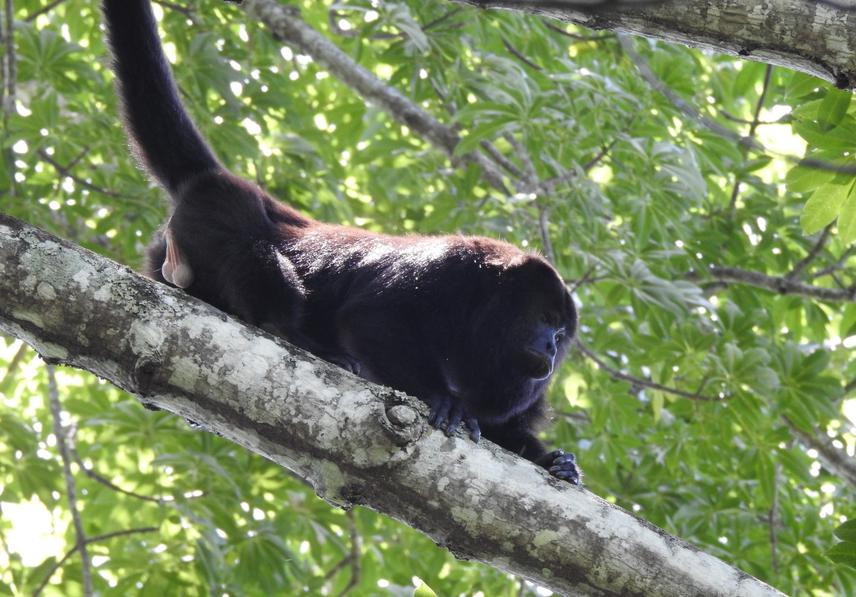Anaid Cardenas Navarrete
Animal movement is essential to life. It drives multiple ecological and evolutionary processes that influence individual fitness, population dynamics, community structure, and ecosystem functioning. As human activities transform natural ecosystems, animals are forced to adjust their movement to the changing habitat structure and availability of resources. Primate species in particular are highly threatened globally – more than 60% are in danger of extinction – by the conversion of tropical forests into anthropogenic landscapes due to their arboreal nature and dependence on resources with irregular temporospatial patterns. Additionally, disturbed vegetation may negatively influence their movement decisions, which play an essential role in the composition of tropical forests by linking the seed dispersal service they provide to plant demography and community dynamics. Most work on primate movement comes from undisturbed, primary forests; however, high deforestation rates transform tropical forests into disturbed habitats throughout the global distribution of primates, leaving most primates unprotected. For primate populations inhabiting human-modified landscapes, their long-term success will depend on their capacity to implement flexible navigation strategies to cope with altered vegetation structure and composition.

Male black howler monkey (Alouatta pigra) walking on a tree branch. © Anaid Cardenas Navarrete.
To evaluate the effects of habitat loss and transformation on the movement ecology of an endangered neotropical primate, I will study the movement of wild black howler monkeys (Alouatta pigra) inhabiting distinct habitats within a gradient of anthropogenic disturbance in southeast Mexico. A. pigra is an endangered folivorous-frugivorous Neotropical primate known to often survive in degraded forests. However, it is not fully understood to what extent the degradation of their habitats affects their movement ecology. Questions about the long-term success of the black howler monkey and their ability to survive in human-modified tropical landscapes are essential – losing the species would have far-reaching ecological ramifications for ecosystem health and Neotropical Forest conservation given their important roles as seed dispersers. Their conservation will ensure the provision of ecosystem services and long-term financial and cultural benefits to local human communities.
Header: View of the tropical forest of Palenque, Chiapas, Mexico. © Anaid Cardenas Navarrete.